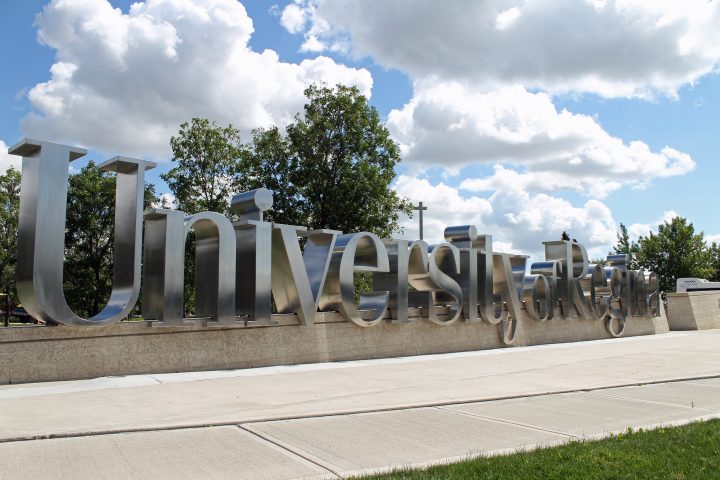The COVID-19 test results for two University of Regina students who were in self-isolation have come back negative, the university confirmed Saturday morning.

On March 12 Global News learned that two students showing “flu-like” symptoms were asked to self-isolate by school officials and the Saskatchewan Health Authority.
The students had been self-isolating on campus. The university reiterated Saturday that they have no confirmed cases of the virus to date.
Late Friday afternoon, the university announced that all non-essential events on and off campus not “directly tied to the academic progress of students” have been cancelled until April 30, when the situation will be reassessed.
Saturday morning University of Regina Provost and Vice-President Academic Thomas Chase confirmed all classes and labs, both face-to-face and online, are suspended from March 16 through March 19. During this time they say the school will remain open.
He said the suspension will reduce the potential for the virus to spread and will give faculties time to prepare coursework for remote delivery going forward.
Thomas added that no face-to-face instruction will take place for the rest of the term, “given the gravity of the COVID-19 challenge”.
Classes are set to resume the morning of Friday, March 20 at a “distance only”.
The school has said they’re following the advice of the Saskatchewan Health Authority and the Public Health Agency of Canada as the pandemic unfolds.
Concerned about COVID-19? Here are some things you need to know:
Health officials say the risk is very low for Canadians, but they caution against travel to affected areas (a list can be found here). If you do travel to these places, they recommend you self-monitor to see whether you develop symptoms and if you do, to contact public health authorities.
Symptoms can include fever, cough and difficulty breathing – very similar to a cold or flu. Some people can develop a more severe illness. People most at risk of this include older adults and people with severe chronic medical conditions like heart, lung or kidney disease.
To prevent the virus from spreading, experts recommend frequent handwashing and coughing into your sleeve. And if you get sick, stay at home.
For full COVID-19 coverage from Global News, click here.



Comments